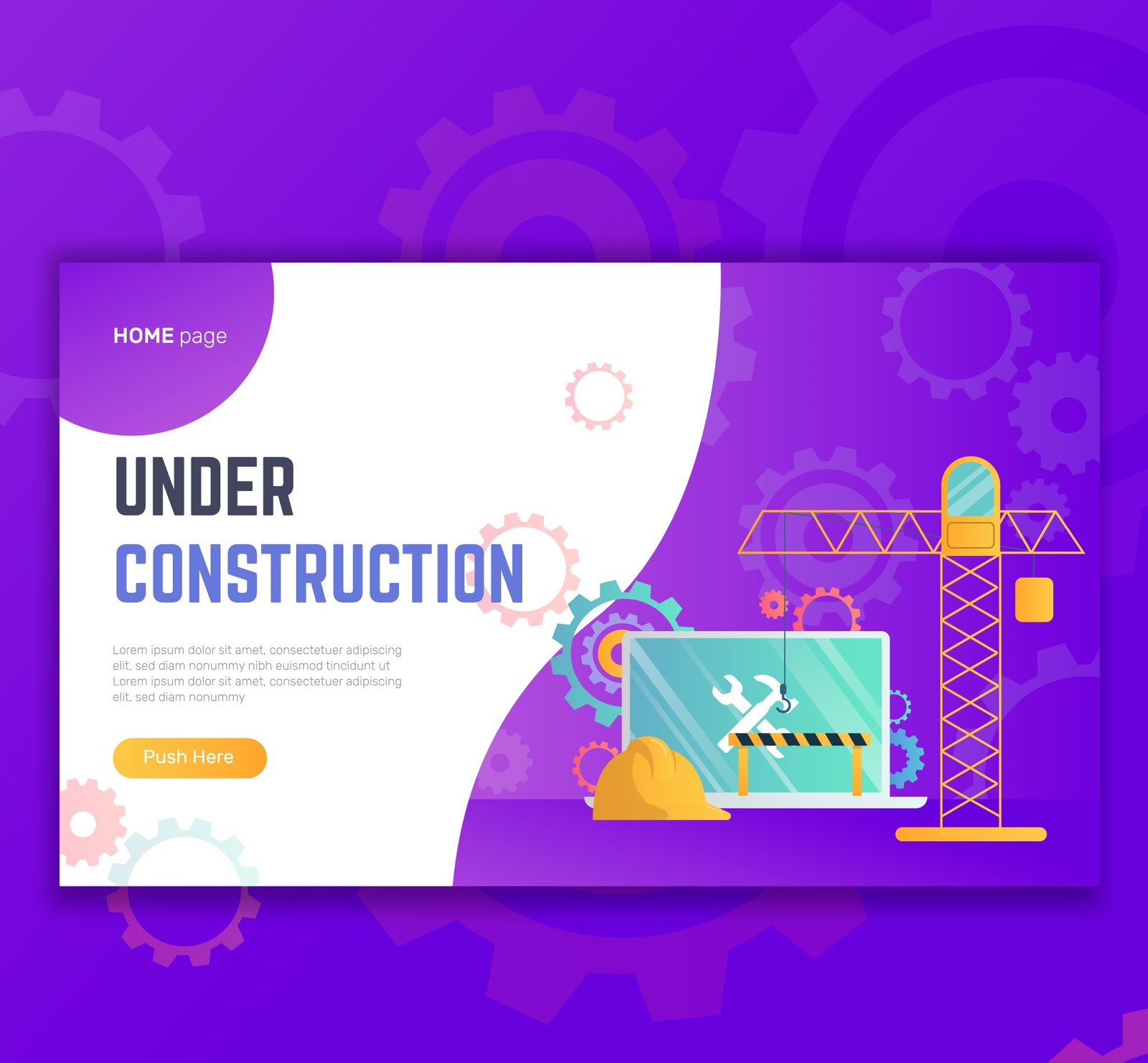
In today's digital age, having a website is crucial for any business or personal brand. When it comes to creating a website, you have two primary options: using a theme builder or building a website from scratch using a framework like Next.js. Each approach has its own strengths, weaknesses, opportunities, and threats. In this comprehensive guide, we'll delve into these aspects to help you make an informed decision. We'll also provide examples and stories to make the concepts more relatable and interesting, especially for those who aren't tech-savvy.
Introduction to Theme Builders and Next.js

What is a Theme Builder?
A theme builder is a tool or platform that allows you to create websites without needing to write code. These builders come with pre-designed templates and drag-and-drop interfaces, making it easy for anyone to design and launch a website quickly. Popular theme builders include WordPress with Elementor, Wix, and Squarespace.
How Theme Builders Work
Theme builders offer a library of templates tailored for various types of websites, such as blogs, portfolios, e-commerce sites, and corporate websites. Users can select a template and customize it by dragging and dropping elements (like text boxes, images, and buttons) onto their pages. These platforms typically provide a WYSIWYG (What You See Is What You Get) editor, allowing users to see their changes in real-time.
Key Features
• Drag-and-Drop Interface: Simplifies the design process by allowing users to move elements around without any coding.
• Template Library: Provides a wide range of templates to choose from, catering to different industries and purposes.
• Plugins and Add-Ons: Extend functionality with additional features like e-commerce, contact forms, and social media integration.
• Hosting and Domain Services: Often includes hosting and domain registration services, making it a one-stop solution.
User Experience
For non-technical users, theme builders offer an intuitive and straightforward experience. The interface is designed to be accessible, with clear instructions and support resources available. The ability to see changes in real-time helps users visualize the final product without needing to understand the underlying code.

What is Next.js?
Next.js is a popular React framework that enables developers to build server-side rendered (SSR) and static websites with ease. It provides the flexibility to create highly customized and optimized websites. Unlike theme builders, using Next.js requires a good understanding of coding, particularly in JavaScript and React.
How Next.js Works
Next.js uses React components to build the user interface. It supports server-side rendering and static site generation out of the box, allowing for fast load times and better SEO. Developers can create pages by placing React components in the pages directory, and Next.js handles the routing automatically.
Key Features
• Server-Side Rendering (SSR): Renders pages on the server, improving performance and SEO.
• Static Site Generation (SSG): Generates HTML at build time, offering fast load times.
• API Routes: Allows developers to create API endpoints directly within the Next.js app.
• File-Based Routing: Simplifies routing by using the filesystem to define routes.
• Automatic Code Splitting: Improves performance by loading only the necessary JavaScript for each page.
User Experience
For end-users, websites built with Next.js offer excellent performance and responsiveness. The server-side rendering and static generation ensure fast load times, providing a smooth browsing experience. Developers, however, need to be proficient in JavaScript and React to build and maintain these websites.
SWOT ANALYSIS
To compare Theme Builders and Next.js, we will utilise a SWOT analysis to provide a structured comparison.
Strengths

Theme Builders
• Ease of Use: Theme builders are designed for users with little to no coding experience. The drag-and-drop interfaces and pre-built templates make it easy to create a professional-looking website.
• Speed: You can get a website up and running in a matter of hours. This is ideal for small businesses or individuals who need a quick online presence.
• Cost-Effective: Many theme builders offer affordable pricing plans that include hosting and domain services. This can be a cost-effective solution for those on a tight budget.
• Support and Community: Theme builders usually have extensive support and community forums where users can get help and share ideas. This can be very helpful for troubleshooting and finding inspiration.
Next.js
• Flexibility: Building a website from scratch using Next.js allows for complete customization. You have the freedom to design and implement any feature you want.
• Performance: Next.js offers excellent performance optimization features, such as automatic code splitting, static site generation, and server-side rendering. This can significantly improve the loading speed and overall performance of your website.
• SEO-Friendly: With Next.js, you have more control over your SEO strategy. You can implement custom meta tags, structured data, and other SEO best practices to improve your site's visibility on search engines.
• Scalability: Next.js is suitable for large-scale projects and can handle complex functionalities. It's used by many large companies like Netflix, Uber, and Hulu, which speaks to its robustness and scalability.
Weaknesses

Theme Builders
• Limited Customization: While theme builders offer a range of templates and design options, they can be limiting if you want a highly customized website. You're often restricted to the functionalities and design elements provided by the platform.
• Performance Issues: Websites built with theme builders can sometimes suffer from performance issues due to bloated code and unnecessary features. This can result in slower loading times and a poorer user experience.
• SEO Limitations: Although many theme builders offer SEO tools, they may not provide the same level of control and optimization as a custom-built site. This can impact your site's search engine ranking.
• Dependency on Platform: Using a theme builder ties you to that specific platform. If the platform experiences downtime or shuts down, your website could be affected.
Next.js
• Technical Knowledge Required: Building a website with Next.js requires a good understanding of coding, particularly in JavaScript and React. This can be a barrier for those without a technical background. Companies like Web Magnetism Ltd help businesses create a stunning website using this platform from scratch.
• Time-Consuming: Creating a website from scratch is more time-consuming than using a theme builder. It involves designing, coding, testing, and debugging, which can take weeks or even months.
• Higher Initial Cost: While the long-term benefits of a custom-built website can outweigh the costs, the initial investment in terms of time and money is higher. You may need to hire developers like the team at Web Magnetism Ltd or invest in learning how to code.
• Maintenance: With great power comes great responsibility. A custom-built website requires regular maintenance and updates to ensure security and performance.
Opportunities

Theme Builders
• Rapid Prototyping: Theme builders are excellent for rapid prototyping. You can quickly create mockups and test different designs and layouts to see what works best.
• Small Businesses and Startups: For small businesses and startups, theme builders offer a quick and cost-effective way to establish an online presence. This allows them to focus on growing their business without worrying about website development.
• DIY Enthusiasts: For those who enjoy the DIY approach, theme builders offer a fun and creative way to build a website. It empowers individuals to take control of their online presence without needing to hire a developer. However, considering the Importance of having a Website in this era, it may be a good idea to hand a project like this to experts like Web Magnetism Ltd to create a website that is not only stunning but attracts the right audience.
Next.js
• Custom Solutions: Next.js provides the opportunity to build custom solutions tailored to specific business needs. This can give you a competitive edge by offering unique features and functionalities that set your website apart.
• Learning and Growth: For developers, working with Next.js can be a valuable learning experience. It offers the chance to deepen your understanding of modern web development practices and stay current with industry trends.
• Enterprise-Level Projects: Next.js is suitable for large-scale, enterprise-level projects. Its scalability and performance optimization features make it a great choice for businesses looking to build complex, high-traffic websites.
Threats

Theme Builders
• Competition: The ease of use and affordability of theme builders mean that many businesses are using them. This can make it challenging to stand out in a crowded market.
• Security Risks: Theme builders are often targeted by hackers due to their popularity. While they do offer security features, they may not be as robust as a custom-built site where you have control over security measures.
• Platform Changes: If the platform changes its pricing, terms of service, or features, it could impact your website. You are at the mercy of the platform's business decisions.
Next.js
• Technical Debt: As you build more features and functionalities, technical debt can accumulate. This can make maintenance and updates more challenging over time.
• Resource Intensive: Building and maintaining a custom website can be resource-intensive, requiring skilled developers and ongoing investment in technology and infrastructure.
• Market Changes: Rapid changes in technology and market trends can impact your custom-built website. Staying current with the latest best practices and technologies requires continuous learning and adaptation.
Real-Life Examples and Stories
Theme Builder Success Story: Sarah's Bakery
Sarah owns a small bakery and wanted to create a website to showcase her products and take online orders. She had no coding experience and a limited budget. Using a theme builder like Wix, she was able to choose a template that matched her brand, customize it with her own photos and text, and launch her website within a week. The built-in e-commerce functionality allowed her to start taking orders immediately. Sarah's Bakery website is simple, user-friendly, and has helped her reach a wider audience without breaking the bank.
Next.js Success Story: Tech Startup
A tech startup wanted to create a highly interactive and performance-optimized web application. They needed features like real-time data updates, user authentication, and complex data visualizations. Using Next.js, their development team was able to build a custom solution that met all their requirements. The server-side rendering capabilities of Next.js ensured fast load times, even with dynamic content. Although the development process took several months, the end result was a powerful, scalable web application that provided a seamless user experience.
Future Trends

Theme Builders
• AI Integration: Many theme builders are starting to incorporate AI to help with design suggestions, content creation, and SEO optimization. This can make the process even more user-friendly and efficient.
• Enhanced Customization: As users demand more customization, theme builders are developing more flexible tools that allow deeper customization without coding.
• Mobile-First Design: With the increasing use of mobile devices, theme builders are focusing on creating more robust mobile-first design tools to ensure websites look great on all devices.
Next.js
• Static Site Generation (SSG): The trend towards SSG continues to grow, with Next.js leading the way in providing robust tools for creating static sites that load extremely fast.
• Serverless Architecture: Integration with serverless platforms (e.g., Vercel, AWS Lambda) is becoming more common, allowing for more scalable and cost-effective deployments.
• Headless CMS: Combining Next.js with headless CMS solutions (like Strapi, Contentful) is becoming increasingly popular, offering flexibility in content management and delivery. These are some of the services rendered by Web Magnetism
Integration Capabilities
Theme Builders
• Plugins and Extensions: Most theme builders offer a marketplace of plugins and extensions that can add functionality such as e-commerce, email marketing, and social media integration.
• Third-Party Services: Integrations with popular third-party services like Google Analytics, Mailchimp, and PayPal are often straightforward and supported out of the box.
Next.js
• API Integration: Next.js makes it easy to integrate with various APIs, whether they are RESTful or GraphQL. This flexibility is crucial for creating dynamic and interactive web applications.
• Microservices Architecture: Next.js can be part of a microservices architecture, allowing different parts of an application to be developed, deployed, and scaled independently.
Community and Ecosystem Support

Theme Builders
• Support and Documentation: Theme builders typically have extensive documentation, tutorials, and customer support. Communities of users also share tips and solutions in forums and social media groups.
• Updates and Security: Regular updates and security patches are provided by the platform, ensuring that websites remain secure and up-to-date.
Next.js
• Active Community: Next.js has a vibrant and active community of developers who contribute to its growth. There are numerous tutorials, courses, and forums where developers can seek help and share knowledge.
• Open Source Contributions: Being an open-source framework, Next.js benefits from contributions from developers around the world, continually improving its features and capabilities.
Detailed Feature Comparisons
SEO Capabilities
Theme Builders: Offer basic SEO tools like meta tag editing, XML sitemaps, and integration with Google Analytics. However, the level of control is often limited.
Next.js: Provides extensive SEO capabilities with server-side rendering, static site generation, and full control over meta tags, structured data, and canonical URLs.
Performance Optimization
Theme Builders: Can suffer from performance issues due to bloated code and third-party plugins. Optimization options are often limited to what the platform provides.
Next.js: Allows for fine-tuned performance optimizations including lazy loading, code splitting, and image optimization. Developers can implement custom solutions to ensure the best possible performance.
Security Considerations

Theme Builders
• Managed Security: The platform typically handles security, including SSL certificates, regular updates, and protection against common vulnerabilities. This reduces the burden on users.
• Risk of Exploits: Due to their popularity, theme builders can be a target for hackers. Security depends heavily on the platform's diligence in patching vulnerabilities.
Next.js
• Custom Security Measures: Developers have full control over security implementations, allowing for custom measures tailored to the specific needs of the application.
• Responsibility: The responsibility for security falls on the development team, requiring a good understanding of security best practices and potential vulnerabilities.
Cost Analysis

Theme Builders
Subscription Models: Typically offer subscription models that include hosting, domain registration, and support. Costs are predictable and usually lower for small to medium-sized websites.
Additional Costs: Premium plugins and extensions can add to the cost, as well as potential transaction fees for e-commerce platforms.
Next.js
Initial Investment: Higher initial costs due to development time and potential need for skilled developers. Hosting and domain registration are separate expenses.
Long-Term Costs: While the initial costs are higher, long-term costs can be lower for large-scale projects due to better performance, SEO, and scalability.
Conclusion
Choosing between a theme builder and building a website from scratch using Next.js depends on your specific needs, resources, and goals. Theme builders are ideal for those looking for a quick, easy, and cost-effective way to create a website without needing technical skills. They offer a range of templates and tools that make it easy to get started, but they can be limiting in terms of customization and performance.
On the other hand, Next.js offers unparalleled flexibility and performance optimization, making it a great choice for complex, large-scale projects. However, it requires a good understanding of coding and a higher initial investment in terms of time and money.
When deciding between a theme builder and building a website from scratch using Next.js, it’s important to consider not only the immediate needs but also the long-term goals of your project.
Theme builders are ideal for:
• Small businesses or individuals needing a quick, affordable, and easy-to-manage website.
• Users with limited technical skills who prefer an intuitive drag-and-drop interface.
• Projects that don’t require extensive customization or complex functionalities.
Next.js is ideal for:
• Larger businesses or startups that need a highly customized, scalable, and performant web application.
• Projects where SEO, performance, and unique features are critical to success.
• Developers or teams with the technical expertise to build and maintain a custom solution.
Understanding the strengths, weaknesses, opportunities, and threats of each approach can help you make an informed decision that aligns with your business objectives and resources. Whether you choose a theme builder or opt for a custom-built website with Next.js, the most important thing is to create a website that effectively represents your brand and meets the needs of your audience.